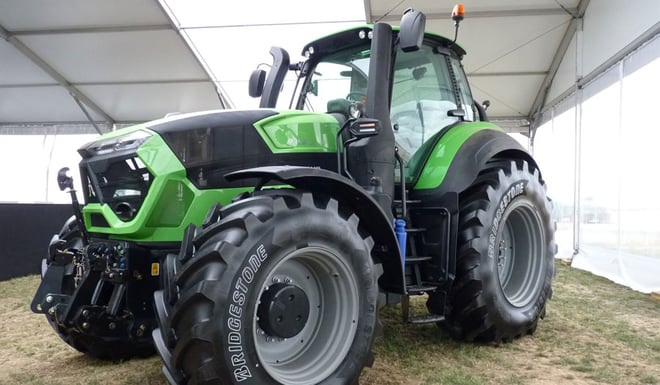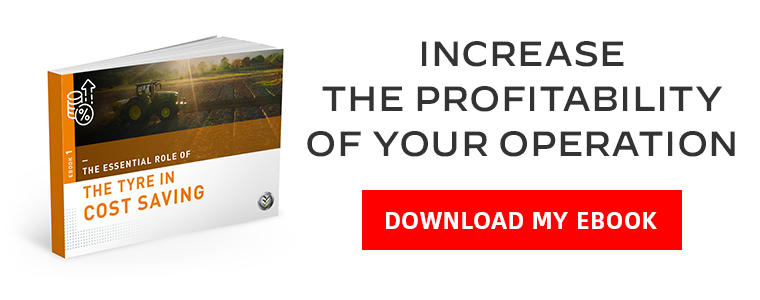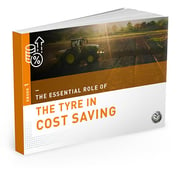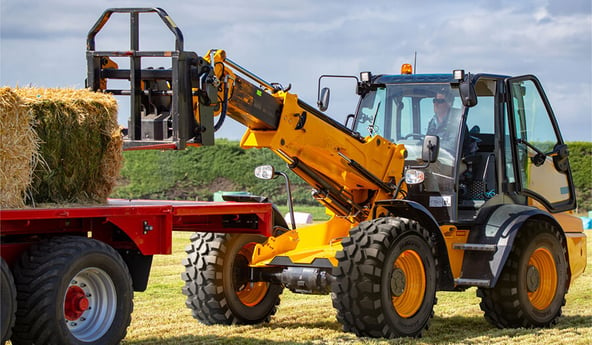Perhaps you think that the warranty is of little importance when it comes to agricultural tyres? But imagine being entitled to a full refund after three years’ use because your agricultural tyre has a manufacturing fault.
In this case the warranty obviously makes a lot of sense. This means significant cost savings which protects your equipment and assures you that the manufacturer offering this type of warranty is perfectly sure of the quality of its tyres. But do you really know what the level of warranty is on your current tyres? what are the terms of your warranty? and how can you be sure to obtain a better warranty when you next replace your tractor tyres?
1. How do you know if your agricultural tyres are covered by warranty?
The legal warranty for agricultural tyres is 5 years from their manufacturing date if your tyres were produced within the European Community.
If you have chosen a more exotic brand on the other hand, or a discount tyre from who-knows-where and you discover a problem the day after mounting your tyre, you can be sure that the warranty will be extremely difficult to obtain.
Often your tyre dealer won’t even know what to do to activate the warranty and you will probably have to pay for a new replacement tyre.
How to establish the manufacturing date of your agricultural tyre
The date of manufacture of your agricultural tyres is extremely important in terms of the warranty.
But how do you know if the new tyre you have just bought hasn’t been part of an unsold stock for 2 or 3 years and therefore only has a short warranty life left before reaching the 5-year mark?
The date of manufacture is stamped on your tyre, unfortunately not in the form of a date, but a 4 number code that indicates the exact week of manufacture.
Here are a few examples to know how to read this four-number code: 4019 or 1020 or 3021 or 1522...
The first 2 numbers indicate the week the tyre was manufactured and the second two numbers indicate the year of manufacture.
- For 4019, this means the fortieth week of 2019, i.e. during October 2019.
- For 1020, this is the tenth week of the year 2020, so during March 2020.
- For 3021 it’s the thirtieth week of 2021, i.e. during July 2021.
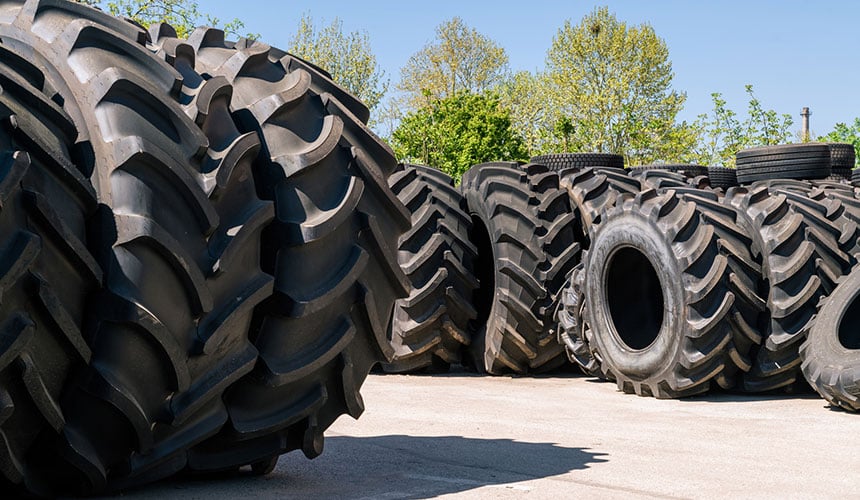
Beware of new tyres at discount prices
You have found a well-known brand of tyre on sale at an unbeatable price. Reassured by the brand name, you jump on the occasion trustingly.
Unfortunately, this type of destocking operation often involves old stocks of unsold tyres which are no longer covered by warranty. Bear in mind that the rubber used in tyres is a material of natural origin which begins to perish and deteriorate over time.
After a few years, the rubber no longer has the same resistance and supple characteristics, so wear to this type of tyre will be much more rapid and irregular with a very low work rate.
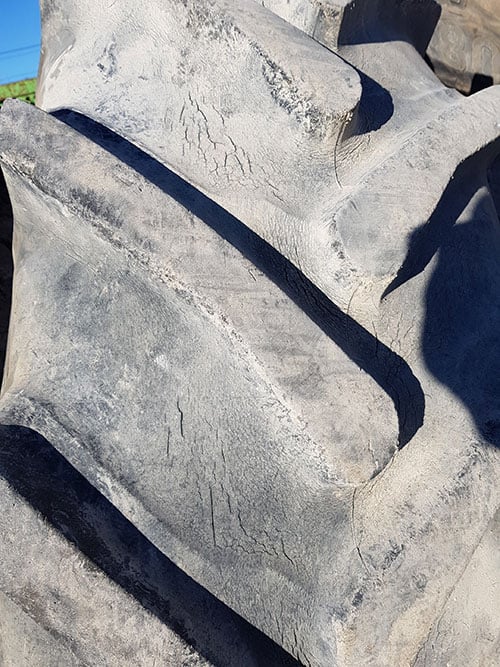
2. What is covered by the warranty
Not all manufacturers offer the same warranties, but generally these cover similar problems which may be linked to defects in materials or manufacturing.
Defects in manufacturing covered by the warranty
As the agricultural tyre is an assembly of several layers of different materials, it is possible that this assembly process is not always carried out in the best conditions.
Defects in manufacturing are often visible defects that may be linked to human error or errors caused by an incorrectly set manufacturing machine for example:
- Tread separation
- Certain materials that do not bond together
- Defects linked to vulcanisation
- Other…
This type of defect is included in the warranty and will normally be covered by your manufacturer.
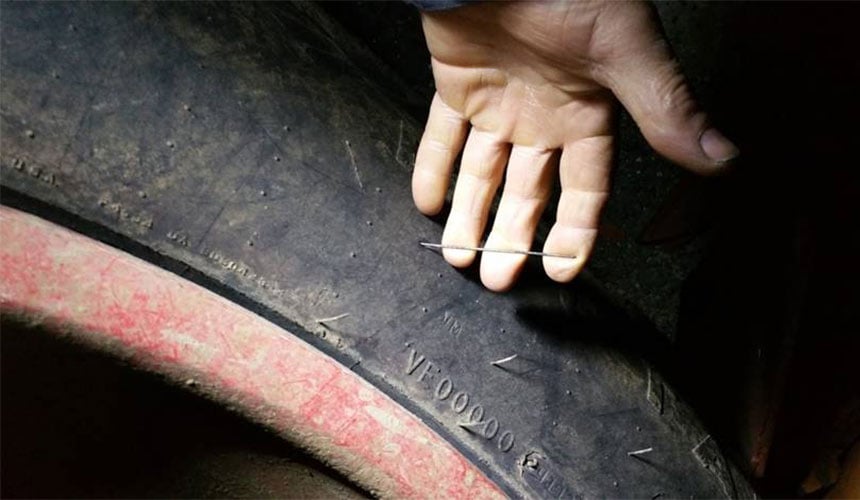
which is sticking out of the tyre sidewall
Problems linked to the tyre’s constituent materials
The materials used to produce your tyres are a mixture of raw materials which are used to obtain the different parts of the tyre.
Depending on the manufacturer and the quality of these raw materials, you may find bubbles or an abnormal rubber surface, or even casing ply that is visible in the sidewalls, or the appearance of the first layer of stabilising ply on the tread…
This type of problem linked to materials is often covered by your warranty.
Problems linked to tyre mounting
Generally when it comes to mounting, it’s the professional guarantee offered by your tyre dealer or distributor who carries out the fitting operation which will be called into play when facing a problem that is clearly linked to the mounting operation.
The manufacturer’s warranty does not usually cover defects or failures resulting from incorrect tyre fitting.
It may be wise to check the tyre mounting immediately after the task has been completed to avoid any subsequent disagreement or dispute.
3. What is not covered by the warranty
It’s always difficult to differentiate between problems which are covered by the warranty and those which are not.
However, all failures resulting from incorrect use of the tyre are not included as part of the warranty. The result on the tyres is visibly different to a defect linked to a manufacturing error or defect in materials.
Inappropriate use of the tyre
Each category of agricultural tyre is designed for a specific use and these tyres cannot be considered as multi-purpose tyres.
For example: if you use tyres that are intended for work in the fields to carry out excavation operations on a work site or if you work with too much load, with the wrong pressure settings, or if you drive on the road faster than the recommended speed…
The warranty will not cover problems linked to these inappropriate uses.
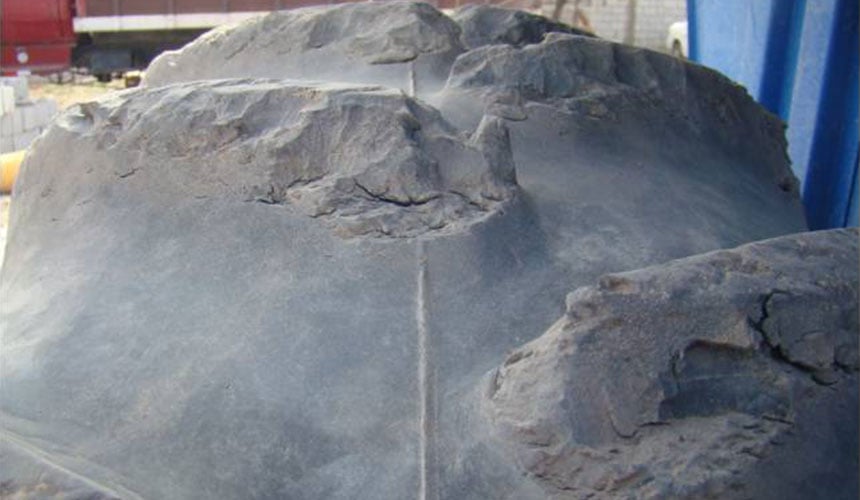
Lack of maintenance and repairs
Agricultural tyres are solid and robust but despite this certain rules must be followed to ensure that they last.
- Such as maintaining the right pressure settings in all circumstances.
- Storing the tyres correctly when they are not in use.
- Avoiding contact with chemical substances or hydrocarbons.
- Keeping them away from heat, frost or prolonged exposure to the sun…
Any alteration of the rubber linked to poor maintenance will not be covered by the warranty.
Natural wear with time or work
Agricultural tyres are essentially made up of natural rubber to ensure that they are supple and that the different components blend together perfectly; and will wear normally as a result of their daily use for transport on abrasive asphalt surfaces over time.
This normal wear will not be covered by the warranty.
4. It’s quality that allows the best agricultural tyre to come with a longer warranty
Generally speaking, there is quite a clear link between the level of warranty provided and the quality of the tyre.
A manufacturer that has worked hard on quality, its manufacturing processes, the level of its personnel and strict product quality control knows that it won’t have many problems to manage and is therefore in a position to offer more services as part of its warranty.
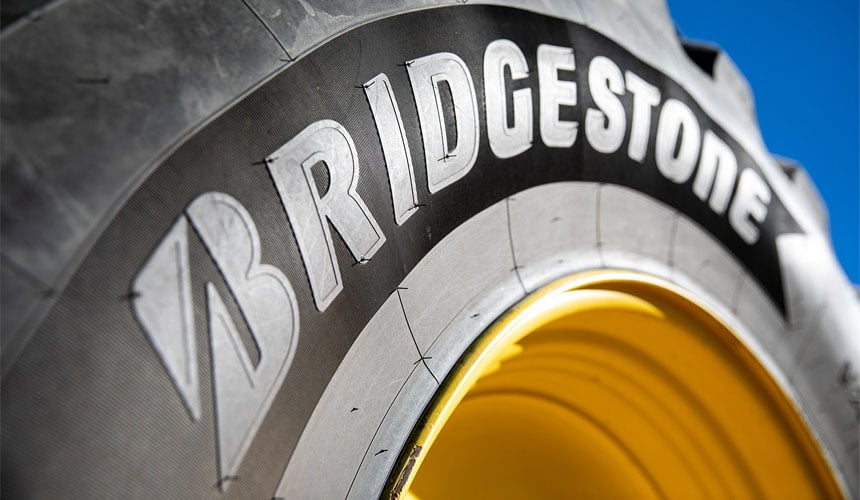
The benefits of superior quality
When a manufacturer offers a long warranty, you can be sure of the quality of the product.
This quality/long warranty mix limits the risks of tyre failure, avoids costs linked to unexpected repair work and effectively protects you against unpleasant financial surprises.
Inversely, the lack of services included in a warranty is a sign of potential hidden defects which explain the low price, but also in general leads to a reduction in the use of the product over time.
5. A 10-year warranty which offers a 100% refund in certain cases
You may not necessarily notice a defect when your dealer fits a new tyre on your tractor.
That is why Bridgestone is offering a 100% refund depending on the level of wear, over a period of up to 10 years of use.
This will ensure that you can work for longer, without the risk of any nasty financial surprises at the wrong time.
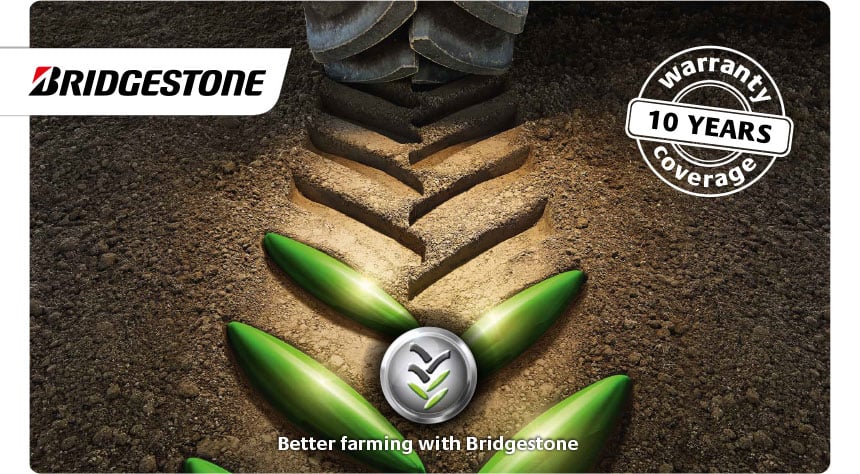
as of the date of purchase
CONCLUSION
A generous warranty in terms of services for your agricultural tyres is not just additional assurance, it’s proof of a very high quality product.
When you renew your tyres, the warranty is an important factor to bear in mind to be sure of making the right choice.
The Bridgestone-agriculture.eu blog is written and administered by tractor tyre experts who are available to provide you with the advice you need on the subject of your agricultural tyres. They allow you to maximise your productivity with information on all subjects linked to tyres: Technical data for agricultural tyres – Agricultural tyre performance – Air pressure advice, Solutions to avoid soil compaction – Sprayer tyre pressure – Why and how to ballast your tractor tyres – etc.
To take it one step further and increase the profitability of your farm, les Experts du pneu provide a free, highly detailed eBook which explains the essential role of the agricultural tyre in your productivity.
Most people who read this article have also read some of the following articles which are listed by order of popularity:
- Buying guide: 10 important tips for choosing the right farming tyres
- Which agricultural tyre configuration is suited to each use
- The best agricultural tyres for agricultural contracting companies
- How do my tractor tyres impact my vineyards?
- Agricultural contracting companies: why to invest in a tire inflation system
- Technologies that make the difference for quality agricultural tyres
- Changing agricultural tyre series: how does it work?
- Which agricultural tyre technology to choose? Standard, IF or VF?
- The advantages of a good agricultural tyre in wine and fruit growing activities
- What are the differences between the 3 generations of VF tyres?
This information is intended only to make you aware of the technical and functional aspects of agricultural tires and their use. It does not allow you to make a judgment or a definitive conclusion on a given problem. Only your agricultural tire expert is able to make a technical assessment and take a final decision, case by case.
Leave a
commentary
Your email address will not be published.
Required fields are indicated with *


